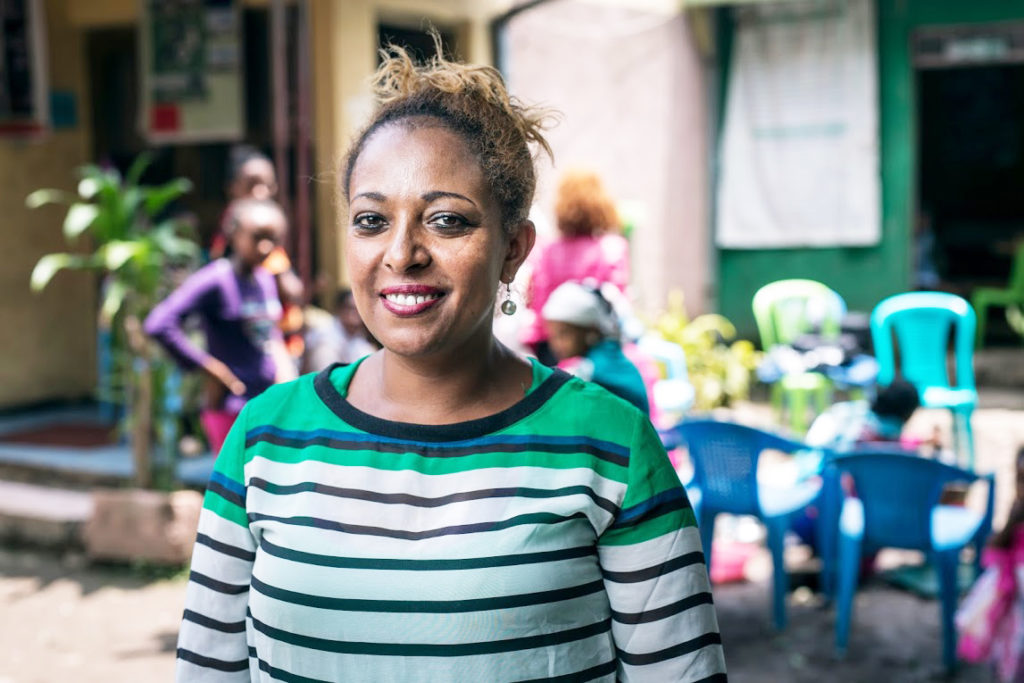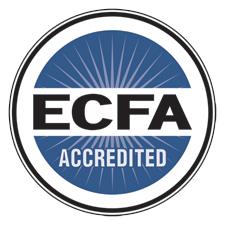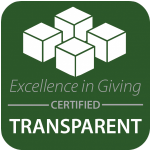Today, on International Women’s Day, we are thrilled to celebrate the leadership and monumental impact of one woman in Ethiopia who is liberating women and children from domestic violence. Despite facing an incredible amount of opposition, Ayni has fiercely followed the calling that God placed on her heart.
Community Partnership Manager, Kimberly, recently asked Ayni a few questions to understand her story and her heart behind her life’s work.
_________________________________________________________________
Can you tell us about what your life was like and what you were doing before Children’s HopeChest?
My life before Children’s HopeChest was terrible, because I was facing many types of domestic violence in my home. This became a driving force to me to think how I can change my life and help other women who are living under violence and I can understand how painful it is even though the abusers are intentionally did this or not. so that in the beginning I started taking some actions in order to step up from my struggles.
My first steps were practicing and thinking about self-respect and self-liberation to put me out of violence. Therefore, I started from diploma holder to degree holder and then from degree holder to get my masters degree. (My masters was after I met Children’s HopeChest.)
When I worked in Compassion International Ethiopia as a social worker for 13 years, I got a chance to see the challenges and struggles of fatherless children. They couldn’t join school and the women who are financially dependent on their partners were exposed to domestic violence. They both are a voiceless community due to the harm they are experiencing in their day to day life. I started thinking about how I can support these vulnerable groups. In the meantime, I discovered that I am not the only woman who lived under domestic violence, which had the potential to damage my mind and push me to death. I could feel all the symptoms that are seen in women who experience domestic violence.
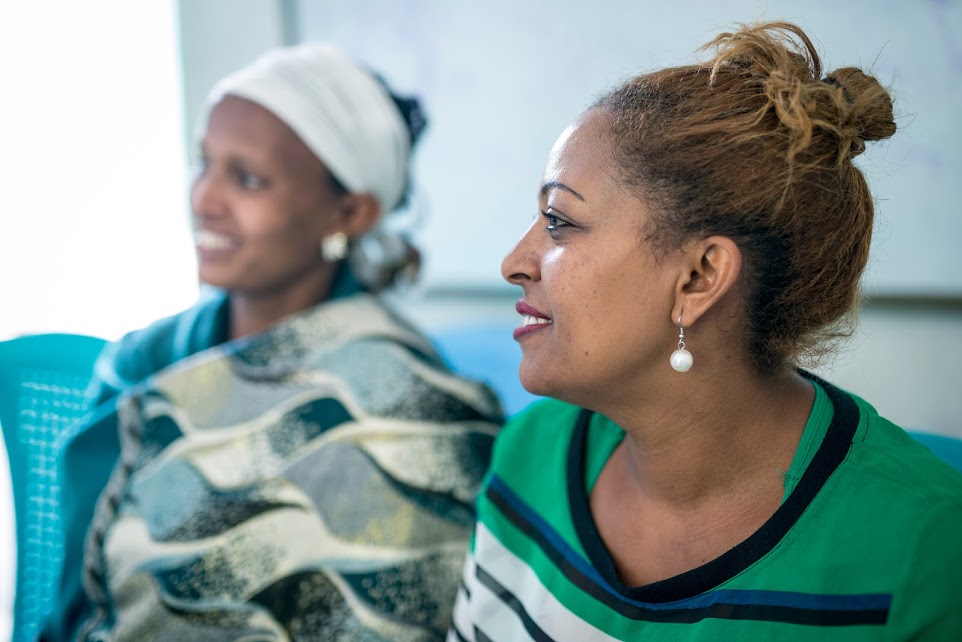
My second step was praying about how I can contribute to creating a violence-free world and how I can help children living in these situations, because I understood those children coming from such family situations are suffering with financial, psychological, and social challenges. In addition, my prayer was, “How can I be aware of how hard domestic violence is and its impact on the next generation?”
After Compassion, I was a finance manager at a nonprofit, but my heart was still with the vulnerable children who were sitting on the streetside around my office. When I went home and cooked dinner for my children, I was crying thinking of those children who I saw during the day. I had a great salary and a good position at this nonprofit, but many questions came to my mind like “Big salary? So what? Is it life?” My heart wanted to share everything for these children.
One day, I decided to share my lunch with these kids. They started laughing and got hope. When I saw them, I felt joy that was not expressible in words.
I heard the will of God clearly about my calling, and I resigned from my job. God made I Care for the Nation CarePoint a way for me to take action, so I opened this organization as a survival center for women, fatherless children, and the destitute community.
I believe that as part of the community, I will have my own role, together with other people who are struggling, to bring change to the vulnerable children’s lives in order to create a safe environment for their growth. I decided to be a leader to fight violence and to be a light for those who are crying in their homes and where children are often fatherless.
I had many sleepless nights and was full of tears during the start. It was tough to run the organization well and to give enough support for the children who were registered in I Care. I was going here and there to find financial resources every day. Finally, God gave me Children’s HopeChest, just like an angel.
Where does your passion for empowering women stem from?
My passion to empower women stems from my life and from the women I met who are suffering violence that has the power to damage their life and has an effect on their children.
My life led me to find a solution for women who are discouraged, ridiculed, frustrated, neglected, provoked, ignored, abused, and voiceless in their homes. I encouraged myself to read to know more about the effect of violence on society in order to be a good solution-finder and change-maker.
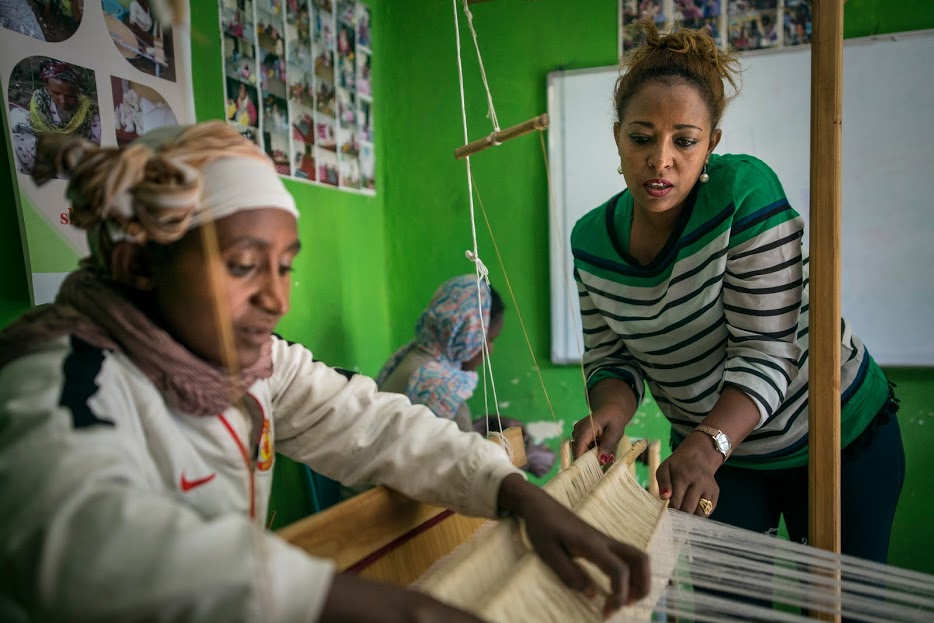
Domestic violence can be done physically, as well as psychologically. Of course this leads the victim to develop traumas which totally have a possibility to damage their mind. Psychological violence directly damages the victim’s mental health. I know how it is so painful and needs intervention and attention.
Domestic violence has a significant impact on the health and well-being of women both in the immediate and long-term, continuing even after the relationship has ended. I can check the truth of this research from my struggles that I was in pain and had the symptoms exactly I read from many books and researching in relation to the effect of violence on women’s health. I had a continuous headache, sleep disorders, difficulty concentrating, depression, and anxiety.
The situation torched and traumatized me, and after some time I developed post-traumatic stress disorder (PTSD). I was going to die, to become crazy, or become bound to a wheelchair, but my God changed my life and blessed me with good health to be a witness to encourage others that God can change the situation and to understand other women who are suffering from violence. I lost my hope to think positive for myself because I was already affected by the violence. My mind was full of worry that I did not think of any possible bright days in my future.
But God stands for me. Gradually, my health progressed.
If anyone can see me, I am sure they will change their mind and gain a hope and trust in God, that he can change all wrong things that happened to abused women. As I believe, women’s empowerment is not only being financially secure but also a matter of mind-settlement, being respected as a human being at home and outside the home.
This led me to find a solution that at least empowering women may reduce the degree of the violence according to its vast effect in many homes. Women are empowered psychologically and financially at I Care for the Nation CarePoint to end their struggle due to violence that is done primarily in their homes.
I strongly believe that if we intentionally work on empowerment for women, we can bring many changes in society and so many can be healed from their stress and depression as I have too. Praise the Lord Jesus almighty, my healer. That is why I focus on women’s empowerment, whatever the cost it has.
You have impacted over 250 women through your empowerment and support groups. How do you sustainably reach this many women?
As much as possible, we want to reach more and more women who are suffering, even though it is a challenge to work for their sustainability with limited financial and physical resources. We, as the CarePoint, designed two intervention strategies to impact the victimized women within a short period of time.
First, we are working on their mental stability, which we call “psychological support” given during a coffee ceremony. It helps the women to meet others who are in the same situation. They share their life experiences and get time to speak out about all the problems they have.
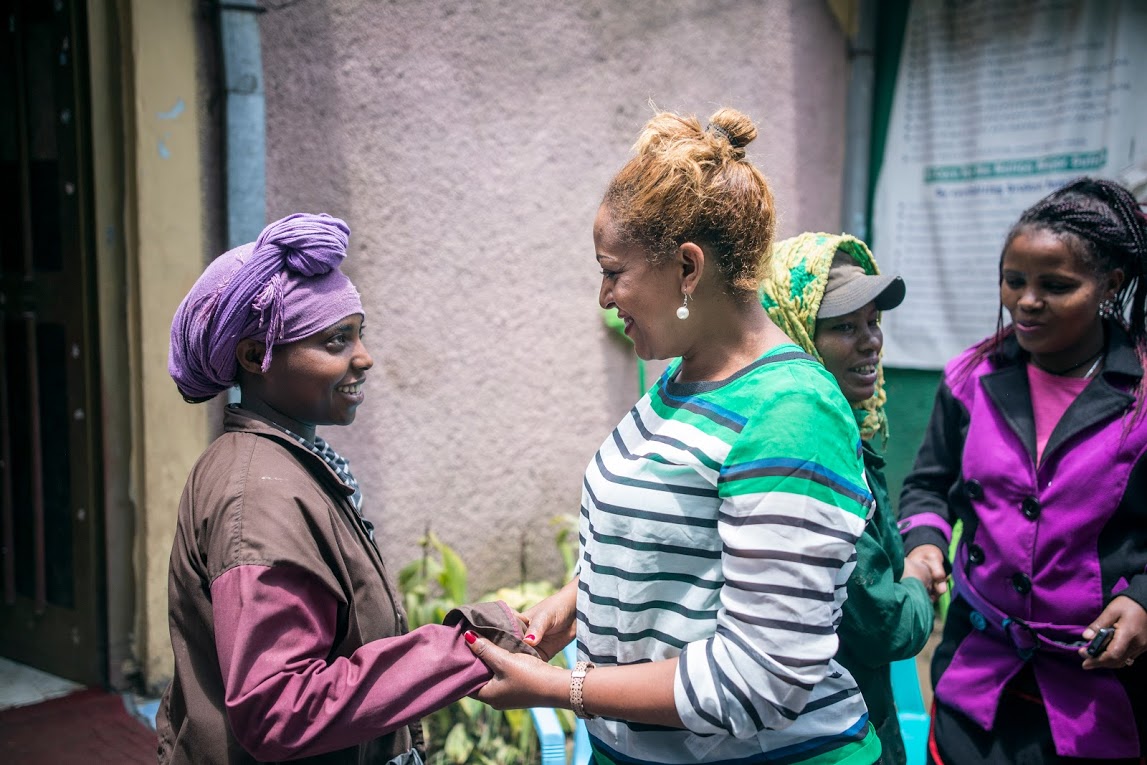
This place is a place where depressed women have the freedom to speak out about their challenges and problems freely. We set six months for this support. Then they can think how they can make their own money and how they can raise their children rather than feeling like dying and having suicidal thoughts.
When we see all progress from them, it is a sign to shift them to skill training for income-generating activities in order to encourage them to make their own money for their financial strength. Finally, they become strong psychologically and financially.
Can you tell us a story that impacted you about someone at your CarePoint?
Let me tell you one amazing story of a woman at the CarePoint. When she came to the CarePoint, she was confused, hopeless, and couldn’t speak a word. Her neighbors told us how she was living in her home and her challenges. Her husband didn’t allow anyone to come to their home to visit her. He restricted her from leaving their home to see others. She was not allowed to get money, rather he forced her to stay home, and she only could manage the small money that he provided for them. She had two children when she came to the CarePoint. Her neighbors brought her to I Care in order to get psychological support. Gradually, she started to be open and share her story. Her husband hit her every night when he came home. He insulted her and had a machete under their mattress, that he used to threaten her if she violated any of his orders. In order to prevent herself and her children from dying by machete, her and her 12-year-old child slept in turns the whole night.
I spent a lot of time with her and shared my testimony in order for her to know she is not the only person who lives in an abusive home, rather it is important to find a way to be free from the violent environment.
The psychological support that she got from I Care helped her to find hope. After some time, she started laughing, playing with other women who gathered in the coffee ceremony for psychological support, expressing herself well and thinking of her bright future. At this time, we put her in income-generating activity training. She started selling injera (local food), bread, and charcoal. Her home situation changed, and her husband threw away the machete and began respecting her and creating a peaceful home, and supported her making her own money to help their family.
Can you tell us about a time when you faced opposition, but succeeded?
According to my health status and survival from mental disability due to the violence that I passed through, I decided to live for others so that I could resign from my job. I understood starting I Care for the Nation was clearly my calling. I decided to confront the violence to bring a solution as a model to other women who are living under violence.
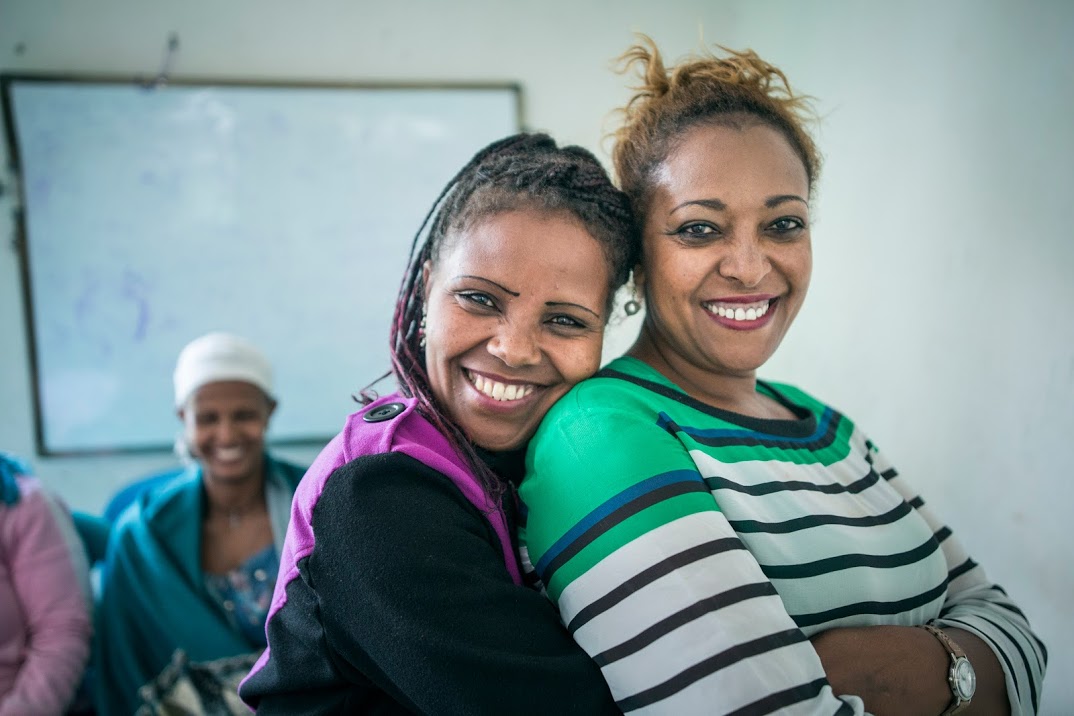
The first person who opposed my decision is my husband and it is not easy to go forward.
In my church, the pastor was my husband’s brother, so he was the one who ignored my calling and told others not to pray for my success and not visit me at the CarePoint. I thought Church is the one that was supposed to support my decision and be with me, encourage me, and support me but to the contrary, they were not. It was painful for me and I felt lonely.
People in general, my families, my friends, except some, were opposed to my decision to open I Care. And so, my loneliness continued.
Throughout this opposition, I had time to talk with my God because he was the one who told me this is my calling and his voice was amazingly with me. He encourages me, guides me on what to do, where I can go. Praise my almighty God!
I had definite support from the voice of the Lord. I felt the Holy Spirit was with me every day and I can feel the joy of living in the will of God. I ignored every opposition and stuck with my direction toward my goal. But God was fully with me.
What are your hopes and prayers for your CarePoint?
I Care for the Nation CarePoint could be a model project that serves as a fruitful community transformation agent for my country as we designed very useful changing ideas. I’d like to see I Care start pushing the government to change its learning policy, especially for the ethical subject issue that should be included in the learning curriculum in order to create physically fit, mentally developed, morally mannered and socially respected society at large.
_________________________________________________________________
Feeling inspired by Ayni’s leadership at I Care for the Nation CarePoint? Learn more about what happens at CarePoints.

